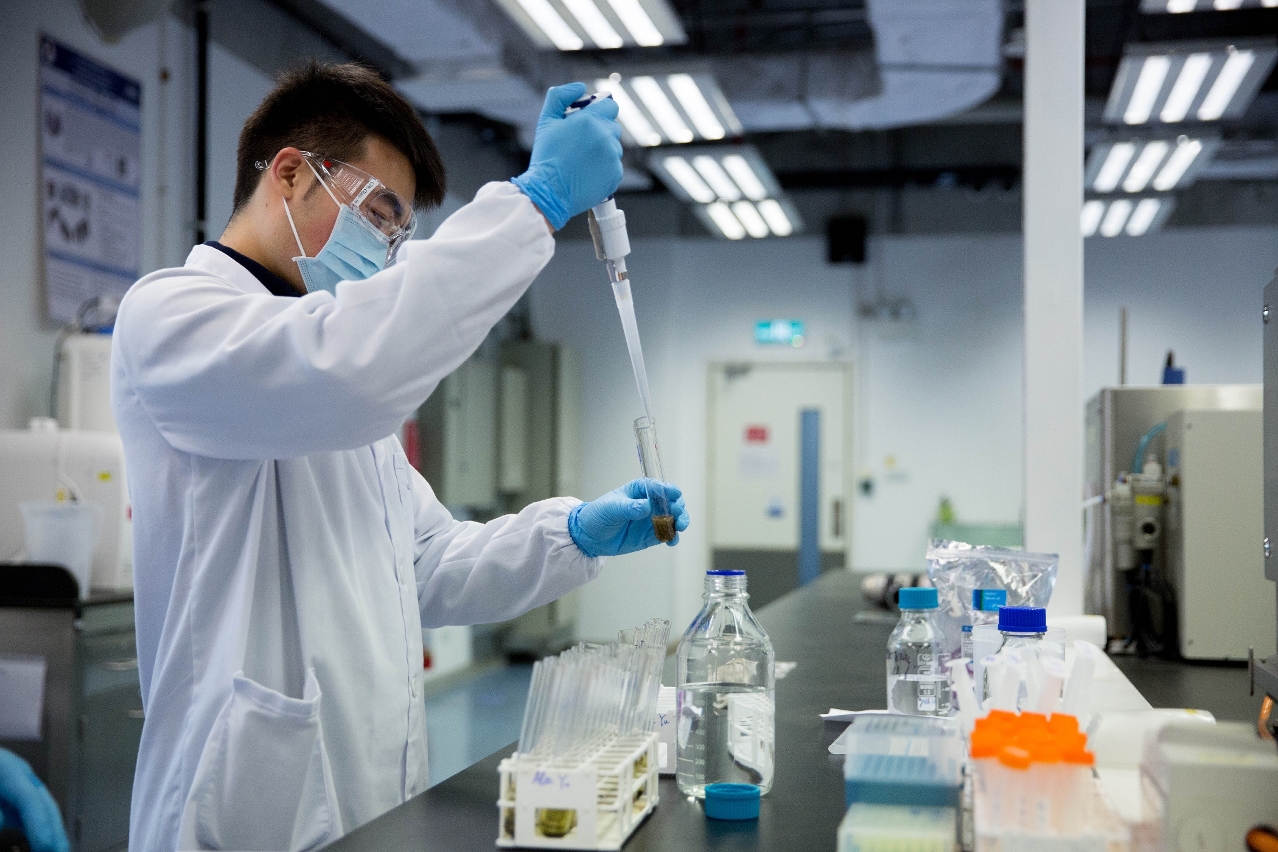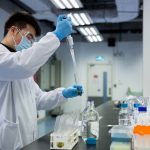 UM scholars have made the list of NSFC Excellent Young Scientists Fund four years in a row and 11 scholars have been awarded the fund
UM scholars have made the list of NSFC Excellent Young Scientists Fund four years in a row and 11 scholars have been awarded the fund
The National Natural Science Foundation of China (NSFC) has announced the awardees of the Excellent Young Scientists Fund (Hong Kong and Macao) for the year 2022. Dai Yunlu, associate professor in the University of Macau (UM) Faculty of Health Sciences (FHS), and Hao Tianwei, assistant professor in UM’s Faculty of Science and Technology (FST), have been awarded the fund. Since the fund was first open for applications from young scholars at eight universities in Hong Kong and Macao in 2019, UM scholars have made the list every year and a total of 11 scholars have been awarded the fund, which is testament to the university’s achievement in research innovation and talent development.
The NSFC Excellent Young Scientists Fund (Hong Kong and Macao) is a national talent development programme, with the aim of supporting young scientists with outstanding achievements in basic research by giving them the freedom to choose the innovative research topic of their interest. The programme also aims to promote the growth of young scholars in science and technology so that they will become the backbone of academic research and will have a chance to reach the forefront of science and technology in the world. UM scholars who were awarded the fund between 2019 and 2021 are Chen Meiwan, professor in the Institute of Chinese Medical Sciences (ICMS); Hu Guanghui, associate professor in the FST; Mok Seng Peng, associate professor in the FST; Qu Songnan, professor in the Institute of Applied Physics and Materials Engineering (IAPME); Cai Yongqing, assistant professor in the IAPME; Wang Chunming, professor in the ICMS; Zhou Wanhuan, professor in the FST; Lu Yan, associate professor in the Institute of Microelectronics; and Sun Guoxing, associate professor in the IAPME.
Since joining UM in 2018, Prof Dai has published 30 SCI papers as first or corresponding author, with 25 papers with a 10+ impact factor and two articles on the ESI Highly Cited Papers list. He entered the list of World’s Top 2% of Scientists in 2020 and received the UM Outstanding Academic Staff Award in the 2020/2021 academic year as well as the Best Teacher (Research Excellence) Award from the FHS in 2021. Prof Dai’s awarded project, titled ‘Metal-polyphenol Coordination-based Biomaterials’, focuses on the development of metal-polyphenol coordination-based biomaterials as well as their clinical translation and applications. The study improves the therapeutic efficacy of small molecule drugs by creating a system that can effectively deliver the drug to the tumour and release the drug upon receiving stimulations from the environment, thereby improving the poor targeting and uncontrolled release of small molecule drugs. His research team is currently exploring the clinical translation and applications of metal-polyphenol coordination-based biomaterials.
With a focus on the biotransformation of pollutants in wastewater and wastewater resource recovery, Prof Hao has published 53 papers as first or corresponding author and has obtained eight patents in the United States, Japan, and China. Some of his research results have been applied in UNESCO-assisted demonstration projects of urban wastewater treatment and waste leachate treatment in Cuba. He has received different awards, including the grand prize of the Hong Kong Institution of Engineers Innovation Awards for Young Members, a gold prize from the Green Tech international competition, and a prize from the International Water Association Project Innovation Awards. Prof Hao’s awarded project, titled ‘Waster Treatment and Resource Recovery’, proposes a solution for the recovery of high-value microbial metabolites and the efficient removal of pollutants in wastewater. Through the development of a microbial genetic metabolism model and self-agglutinating granular sludge, Prof Hao’s research team successfully converted water pollutants into the scarce sulfated polysaccharides, which can be widely used in the industrial, food, and medical sectors. The subsequent research and development of a drug-free and environmentally-friendly disposal technology has also solved the problem of secondary pollution brought by the by-product of wastewater treatment, achieving a breakthrough in pollution prevention and control, which also helps to promote continuous improvement in the quality of the aquatic environment.


